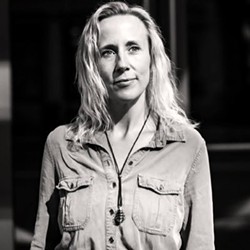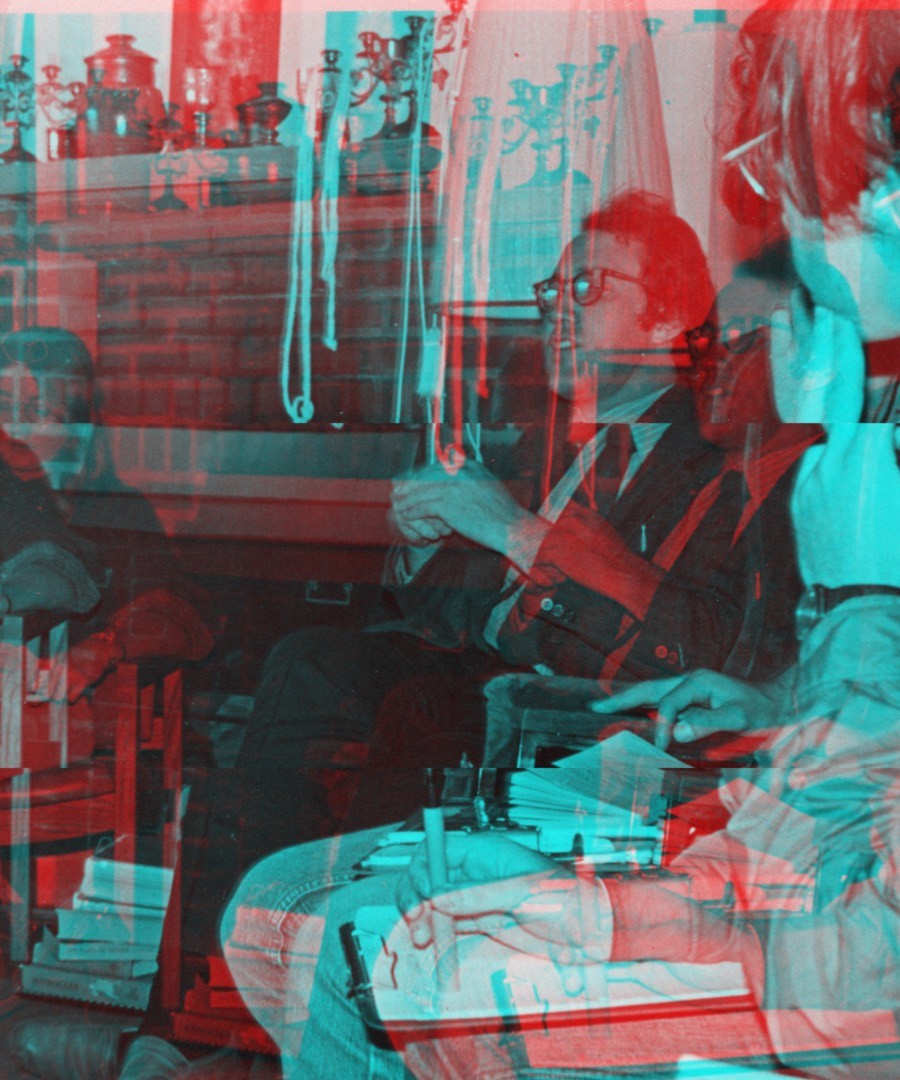DISCLAIMER: Victoria Walton attended the University of King's College from 2013-2017; she attended lectures given by Wayne Hankey as part of the first-year Foundation Year Program.
Wayne Hankey was once a well-respected scholar. An esteemed academic. An Anglican priest. The big man on campus at the University of King’s College, in Halifax. But when the 77-year-old died in early February after a heart attack a few days earlier, he was none of those things.
Normally, the death of a longtime professor and important figure on campus would mean a grand funeral, maybe even a lecture in their honour. But Hankey’s death was different; he was heading to court and facing jail time on three historic counts of sexual assault, spanning 1977 to 1988. More abuse was suspected among the whisper network that had existed to warn students about Hankey for decades, going back as far as the 1970s.
Hankey had already served a one-year suspension from King’s and his religious authority was stripped after being found guilty of “immorality” by an ecclesiastical court in 1991 for sexually abusing a student for two years in the late ‘70s. But Hankey’s reputation and grandeur—both academic and personal—allowed his misdeeds to be swept under the rug.
“Everybody knew about Wayne Hankey,” says Glenn Johnson, who has brought a civil suit against the universities he claims ignored Hankey’s actions. “Everybody knew about it, but it was just hush hush. There was plenty of talk on campus.”
Ardath Whynacht took Foundation Year Program at King’s in the early 2000s. She heard the widespread rumours that the classics professor had inappropriate relationships with students. “There was definitely a feeling that students shouldn’t trust being close to him or in vulnerable spaces with him.”
But Whynacht says, “what I remember most about King’s at the time was that Wayne Hankey was a bit of a rockstar.”
Hankey retired from King’s in 2015, but was still teaching one course at Dalhousie when the first charges were laid. He was set to appear in court March 3 on the first historic charge. But instead, two days after his death, the crown entered no evidence against Hankey, and the judge dismissed the charges. According to an email from the Nova Scotia Public Prosecution Service, this was “the only option available.”
So what does it mean for survivors when an accused dies? Is death the ultimate form of justice, or do the dead merely avoid the consequences of their actions?
Johnson was at home in Ottawa when he heard about the death of the man he accuses of assaulting him in the late 1970s when Johnson was 14. “It was almost like Wayne Hankey was dropped in[to] my room,” he says. “It was like everything was right back to when I was attacked by him.
“The first thing in my mind was, he’s not going to have to face me in a courtroom,” Johnson says. “He’s not going to sit there and have to hear me say, ‘This is what you did. You destroyed part of my life. You made it harder for me to have relationships; I questioned my sexuality.’ There are all these things that happened because of him, because of what he did to me.”
“I knew that this was the end of any criminal trial going forward. Any type of closure that I would possibly have within the legal system.”
tweet this
Last autumn, Carrie Low was forced to deal with a strikingly similar situation. For weeks, she’d been looking forward to the court date that would see a man accused of sexually assaulting her in a trailer in 2018 stand trial. “This day to me meant more than anything,” Low says in a Zoom call. Not only was it the beginning of Alexander Joseph Frederick Thomas’s trial; Low also wanted to expose what she believes is police misconduct in her case.
But, she says, “none of that ever came to light.”

Forty-eight hours before Thomas was set to appear, Low got a call from lead investigator RCMP staff sergeant Brian Fitzpatrick. Thomas had been murdered.
Low didn’t have time to process. “The detectives in homicide wanted me to come in to talk to them, to rule me out as a suspect.” Though she had a solid alibi for the night Thomas was shot in Dartmouth, Low says it was hard “to try to wrap my head around the thought of even being considered.”
At court that Tuesday, the judge quickly dismissed the charges against Thomas. At the time, he was the only one accused in her case. “I knew that this was the end of any criminal trial going forward,” Low says. And “any type of closure that I would possibly have within the legal system.”
Glenn Johnson is represented by Wagners Law Firm in Halifax in his civil suit against King’s and Dalhousie University. The suit alleges the schools failed to protect him and other students from Hankey, and didn’t do enough to prevent further abuse once made aware of it.
“They had to know what he was up to, because there were plenty of complaints about him,” says Johnson. “Everybody on campus knew that this was the guy who went after young men.”
King’s president William President Lahey is not speaking to media about the civil suit, nor the school’s independent investigation into the situation, launched last March under the lead of Janice Rubin of Toronto legal firm Rubin Thomlinson. But the terms of reference aim to determine “whether anyone in a position of authority and responsibility at King’s had knowledge of these facts and if so, what they did about them.”
Liam O’Reilly, a lawyer at Wagners, says generally the firm looks for accountability from institutions “for their failure to stop the abuse from happening or take note that they have these people in their midst.” While it’s not currently a class action suit, O’Reilly says that might change if more survivors come forward.
Johnson’s main goal isn’t compensation. It’s for King’s and Dalhousie to hear his story. “This is what happened: you had a predator in your staff who had power. It’s very important to me that I get some justice by a court saying ‘yes, we believe you.’”
The day after Hankey’s death, president Lahey announced the school would continue its independent review, encouraging other survivors to reach out. Johnson says he has plans to speak to Rubin during the investigation, which he calls a “commendable” step on the part of the university.
“They had to know what he was up to, because there were plenty of complaints about him. Everybody on campus knew that this was the guy who went after young men.”
tweet this
“I’m certainly willing to talk to them to help them figure out how to prevent this kind of thing from happening in the future,” Jonhson says. “But they also have to address what happened in the past. I’m hoping that they will not try to hide behind his death.”
While Whynacht, a professor of sociology at Mount Allison University who focuses on justice and family violence, doesn’t have a lot of faith that the investigation will shift the culture at King’s, she says at least it will shed more light on the problem.
“It is important to have some sort of process that acknowledges the surviving folks on King’s College campus that did enable the abuse,” says Whynacht. “Not just the abuse that was perpetrated by Wayne Hankey, but that was enabled by those who wanted to continue to benefit from his presence on campus.”
For universities, those benefits could mean everything from improved eligibility for grants, to hosting star-studded conferences and panels, to being associated with professors who write lauded scholarly articles or make breakthroughs in their fields. The perks, in other words, of hiring a “rockstar.”
The weeks after Thomas’s death were a blur for Carrie Low. On top of realizing the trial was over for the time being, she was also receiving numerous messages congratulating her on Thomas’s death. Things like: Oh, this is great and Congratulations! They got someone!
But she didn’t feel like celebrating. “Justice for me, that would help me to move forward, would be to get closure, to understand what went wrong, to understand the failures.”
First & foremost, my deepest sympathies go out to Alexander Thomas’s family & community for their tragic loss. It saddens me to see & hear all of the hurtful comments that Mr. Thomas’s death was somehow deserved & is some type of justice for me. I can assure you it is not. 2/3
— Carrie Low (@LowCarrie) November 18, 2021
Emma Halpern, the executive director of the Elizabeth Fry Society, says the type of justice Low wants isn’t “bad people should have bad things done to them.” It’s institutional change. “Being treated with respect, transparency, openness.” It’s the same type of justice that the Nova Scotia Mass Casualty Commission is meant to bring to its independent examination of the 2020 Portapique shootings. The commission’s mandate includes creating a report that “sets out lessons learned as well as recommendations that could help prevent and respond to similar incidents in the future.”
In early February, police charged a second man with sexual assault in Low’s case. Brent Alexander Julien, 33, will be arraigned in Dartmouth provincial court on March 15. While a second arrest may sound like a good thing, it’s also impeding Low’s ability to pursue other avenues of justice: her civil suit against the RCMP and Halifax Regional Police, and an internal police investigation about the handling of the case.
“Once he was murdered, in theory, the civil case could happen much quicker,” Halpern says. ”Unfortunately, [the police] stalled as much as they could.” And now, because neither the civil suit nor the internal police investigation can go ahead while there’s a criminal investigation ongoing, both are delayed.
Whynacht says, “A lot of weight is placed on the value of a criminal trial, even though it can be as harmful as it is helpful because we don’t have good alternatives for holding folks accountable…. All of our expectations get placed into the prospect of a trial.”
Like Halpern, Whynacht says the real goal of civil suits and internal investigations should be institutional change. And it’s not just King’s that has problems. Academia is steeped in a long history of protecting predators, as evidenced by the three Dartmouth College professors accused of sexual assault in 2017, a former University of Alberta student who spoke out in 2020 and, most recently, a Harvard University sexual harassment lawsuit.
“The way that scholarship is practiced at Western universities really lends itself well to enabling highly charismatic, narcissistic men who abuse their power,” Whynacht says. “We’re doing a disservice to survivors if we see Wayne Hankey in an isolated way and we look at this as an isolated case.”
Glenn Johnson speaks optimistically about the potential outcomes of the civil case and the school’s investigation into Wayne Hankey, but he is still struggling personally. “His death hasn’t stopped my nightmares or flashbacks,” he says. The only good thing about Hankey’s death, he says, is “knowing that he can’t hurt anybody else.”
Johnson never wished for Hankey’s demise, only that he’d face justice. "He got away from a criminal sentence,” he says. “But I’ve been sentenced to life for what he did to me.”

